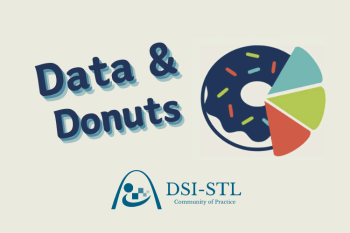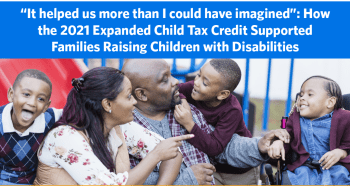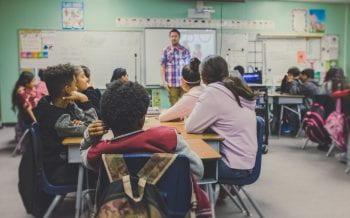We’re thrilled to announce and welcome a new group of emerging leaders in policy research and translation to the JPMC Social Policy Research Scholars Program! This initiative, now in its second year, supports doctoral students from historically marginalized groups underrepresented in academia in their efforts to create a more inclusive, socially, racially, and economically just […]
Author: Social Policy Institute
Data for Social Impact Initiative Launches Data Equity Learning Cohort
To build connection and capacity for social sector leaders in equitable, collaborative data practice, Data for Social Impact (DSI), an initiative of the Social Policy Institute at Washington University in St. Louis, launched a Data Equity learning cohort in January 2024 in collaboration with Actionable Intelligence for Social Policy (AISP) of the University of Pennsylvania. […]
Revealing Barriers to Cyber-Protection Among Small and Medium Businesses

Introduction Small and medium businesses (SMBs) contribute significantly to the global economy. According to the World Bank, SMBs represent 90% of businesses and more than 50% of employment worldwide. In addition, SMB ownership helps facilitate upward social mobility by building wealth and assets. However, even though the financial gain of owning a business is high, […]
STEM training, apprenticeships increase work satisfaction (Links to an external site)

Participation in a science, technology, engineering and math (STEM) apprenticeship program increased job happiness, finds a new study from the Brown School at Washington University in St. Louis.
Data & Donuts 3/15/24 (Links to an external site)

Let us know if you can attend our free Data and Donuts event on Friday, March 15th at Delmar Divine!
Can training and apprentice programs in STEM increase worker life satisfaction and optimism?

Abstract Background Despite the significant relationship between life satisfaction and education, less is known about the connection between life satisfaction and informal learning in the context of training and apprenticeship programs. This paper examines the influence of the LaunchCode program, a novel training and apprentice program in STEM, on participant’s life satisfaction and optimism. We […]
Participatory Research for Guaranteed Income: In Her Hands

By Katie Ragsdale, Katie Kristensen, Dr. Leah Hamilton, and Dr. Latrice Rollins The Social Policy Institute (SPI) seeks to shift to a participatory approach throughout its research and programming. Our working definition of a participatory approach draws on the theory and practice of Community-Based Participatory Research (CBPR). While CBPR is not always feasible or appropriate […]
Fostering Inclusive Policy Research: Embracing a Participatory Approach

By Katie Ragsdale & Katie Kristensen At the Social Policy Institute (SPI), we are deeply committed to fostering inclusive and impactful policy research. We recognize that the traditional top-down approach to policymaking often neglects the voices and experiences of communities and stakeholders most impacted by the problem at hand. Over the past two years, we […]
Accepting submissions for special issue of Nutrients (Links to an external site)

SPI Associate Director Dan Ferris and faculty affiliate Sarah Moreland-Russell co-editing. Submission deadline May 15, 2024. The topic is “Nutrition Policy and Programs in Educational Settings: Equitable Approaches to Food Security.”
Expanded Child Tax Credits: A Transformational Opportunity to HelpFamilies Put Food on the Table

2023 FRAC Research Brief Abstract The 2021 expanded Child Tax Credit (CTC) showed a clear path to dramatically cutting hunger and poverty — the central root cause of hunger — among households with children. These essential benefits for children and their families were lost when the CTC expired in December 2021. This brief provides key […]
Tackling Disparities in Child Education Amidst COVID-19 Recovery: Lessons from Israel

Yung Chun, Oren Heller, Jason Jabbari, Yaniv Shlomo, Ayala Hendin, Fanice Thomas and Michal Grinstein-Weiss The COVID-19 pandemic made significant and wide-ranging impacts on child education by disrupting learning process and exacerbating existing inequalities across continents. School closures intended to curb the virus’s spread, resulted in reduced instructional time and limited access to crucial resources […]
Sharing Data, Building Trust: A St. Louis Case Study in Data Collaboration

Join us on November 9th at 1 p.m. for this free virtual event! Learn strategies for conducting collaborative research between academics and practitioners and explore some of the data challenges involved. How can partnerships between researchers and practitioners help schools serve students better? And what are the opportunities and challenges of this kind of work? […]
City launches Guaranteed Basic Income program for families (Links to an external site)
The St. Louis Guaranteed Basic Income Program has opened applications, and SPI will help evaluate its outcomes.
Democratizing the Economy or Introducing Economic Risk? Gig Work During the COVID-19 Pandemic

Abstract Though the growth of the gig economy has coincided with increased economic precarity in the new economy, we know less about the extent to which gig work (compared with other self-employment arrangements and non-gig work) may fuel economic insecurity among American households. We fill this gap in the literature by drawing on a sample […]
Israeli student visiting WashU wins $3,000 in thesis competition, donates it all to IDF (Links to an external site)
Avnor is a Ph.D. clinical neuropsychology student at the University of Haifa and she is associated with the Social Policy Institute at Washington University in St. Louis.
Municipal officials’ perspectives on policymaking for addressing obesity and health equity

Abstract Background: Obesity evidence-based policies (EBPs) can make a lasting, positive impact on community health; however, policy development and enactment is complex and dependent on multiple forces. Aims and objectives: This study investigated key factors affecting municipal officials’ policymaking for obesity and related health disparities. Methods: Semi-structured interviews were conducted with 20 local officials from […]
Connecting the Dots between Barriers to W.I.C. Access and Adult and Child Food Insecurity: A Survey of Missouri Residents

Abstract Background. Previous research has explored the impact of W.I.C. on recipients’ health, but less is known about the connection between barriers to W.I.C. access and health outcomes. We fill in a gap in the literature by studying the relationship between barriers to Special Supplemental Nutrition Program for Women, Infants, and Children (W.I.C.) access and adult […]
How Did Reskilling During the COVID-19 Pandemic Relate to Entrepreneurship and Optimism? Barriers, Opportunities, and Implications for Equity

Abstract With shorter durations and fewer barriers to entry, reskilling programs may serve as vehicles for social mobility and equity, as well as tools for creating a more adaptive workforce and inclusive economy. Nevertheless, much of the limited large-scale research on these types of programs was conducted prior to the COVID-19 pandemic. Thus, given the […]
The Case for Early Wealth Building Accounts

Abstract Aspen FSP research on the Future of Wealth has shown that to succeed in the United States economy, people need to enter adulthood–a life stage when many critical investments are made – with a substantial amount of money to invest in themselves and their future. The importance of what we’re calling “investable sums” in young adulthood […]
How Would Americans Respond to Direct Cash Transfers? Results from Two Survey Experiments

Abstract Universal basic income has gained renewed interest among policy makers and researchers in the United States. Although research indicates that unconditional cash transfers produce diverse benefits for households, public support lags in part because of predicted unemployment and frivolous spending. To understand how Americans would reorganize their lives around unconditional cash transfers, this article […]
Faculty receive equitable growth grants (Links to an external site)

Stephen Roll, associate director of research at SPI, received an equitable growth grant from the Washington Center for Equitable Growth
A Safe Place’: Rural HIV Patients and Providers Fight Stigma, Isolation Through Connection (Links to an external site)

Phil Marotta was quoted regarding his work on HIV in rural areas, and the impact stigma has on important health decisions.
Looking Back, Looking Forward: What’s Next for the St. Louis Data Community

Join the growing St. Louis data community at 4 p.m. on September 7th in the Clark-Fox Forum at Hillman Hall as we celebrate the Regional Data Alliance’s 5th birthday & next phase of Data for Social Impact! Over the past five years, the St. Louis Regional Data Alliance has worked to build data infrastructure and […]
COVID-19-Related Fear among Youth in Israel

Abstract The present study sought to expand the now expansive research on COVID-19 by examining COVID-19-related fear among adolescents in Israel, focusing on demographic variables, COVID-19-related variables (e.g., exposure and vaccination), psychosocial variables (e.g., adolescent wellbeing and perceived social support), and technology usage (e.g., amount of time spent on social media). Data from parents were […]
Perceptions of School Quality and Student Learning During the Pandemic: Exploring the Role of Students, Families, Schools, and Neighborhoods

Abstract Given the inequitable distribution of resources across school, neighborhood, and home contexts in the United States, lower resourced students may have had fewer opportunities to learn during the coronavirus disease 2019 pandemic, which may have caused previous disadvantages to accumulate during the pandemic. Nevertheless, research has yet to comprehensively explore how school, neighborhood, and […]
Work Smarter Not Harder: How Data Sharing and AI Can Improve Transportation

How can data collaboration and AI improve impact in the social sector? And how can these tools be used responsibly while minimizing harm? Join us and hear Dr. Yaw Adu-Gyamfi (University of Missouri) discuss the role of data sharing and AI in supporting intelligent transportation systems in the St. Louis region and beyond. Applications range […]
Government Investment Priorities as a Structural Determinant of Health: Interrogating the Carceral Resource Index.

Join us on Thursday, May 4, for a virtual conversation with Northeastern University law professor Leo Beletsky, JD, MPH. About this event Join the Social Policy Institute, WashU School of Medicine, and SAMHSA in a discussion with Professor Leo Beletsky on his work surrounding the Structural Determinants of Health and the use of the Carceral […]
What to Do With Your Tax Refund? Save for Emergencies. (Links to an external site)

Stephen Roll, associate director of research, did an interview with the New York Times on how to best use your tax refund
Free Online Course Focuses on Cultivating Collaborative and Equitable Data Practices

Data for Social Impact, an initiative of the Social Policy Institute at Washington University in St. Louis, has launched a free online course for social sector professionals. While many courses develop technical data skills, this course—designed with, by, and for social sector leaders—supports organizations in cultivating equitable, collaborative data practices. Each module includes worksheets, resource […]
Data and Donuts (Links to an external site)

Join us for our third Data and Donuts event on Friday, April 28th at UMSL @ Grand Center from 8:30-10:00!
As Supreme Court Considers Student Loan Forgiveness, States May Expand Their Programs (Links to an external site)
“It helped us more than I could have imagined”: How the 2021 Expanded Child Tax Credit Supported Families Raising Children with Disabilities

Summary The 2021 expanded Child Tax Credit (CTC) provided temporary enhancements to the existing CTC for the tax years 2021 and 2022. Under the expanded credit, families with children under the age of 18 were eligible to receive a credit of up to $3,000 per child ($3,600 for children under the age of 6). In […]
How Would Americans Respond to Direct Cash Transfers? Results from Two Survey Experiments

Abstract Universal basic income has gained renewed interest among policy makers and researchers in the United States. Although research indicates that unconditional cash transfers produce diverse benefits for households, public support lags in part because of predicted unemployment and frivolous spending. To understand how Americans would reorganize their lives around unconditional cash transfers, this article […]
Coping with COVID-19: Differences in hope, resilience, and mental well-being across U.S. racial groups

Abstract Objectives To explore if the COVID-19 pandemic revealed differences across racial groups in coping, resilience, and optimism, all of which have implications for health and mental well-being. Methods We collect data obtained from four rounds of a national sample of 5,000 US survey respondents in each round from April 2020 to February 2021. Using […]
Timely and well-targeted financial help during COVID-19: an employer-community partnership for hotel workers in New Orleans

Abstract Economic disruptions related to the COVID-19 pandemic left many households without the income necessary to meet basic needs. We describe an innovative, community-based partnership between a financial services company, philanthropic funders, and employers to provide financial assistance to hotel workers in New Orleans who lost jobs and income due to the COVID-19 pandemic. Results […]
Racial and Ethnic Disparities in Housing Instability During the COVID-19 Pandemic: the Role of Assets and Income Shocks

Abstract Stable and adequate housing is critical to sound public health responses in the midst of a pandemic. This study explores the disproportionate impact of the COVID-19 pandemic on housing-related hardships across racial/ethnic groups in the USA as well as the extent to which these disparities are mediated by households’ broader economic circumstances, which we […]
Does Frequency or Amount Matter? An Exploratory Analysis the Perceptions of Four Universal Basic Income Proposals

Abstract Advocates for a Universal Basic Income (UBI) argue that it would provide citizens with a basic foundation for financial security, boost the economy, alleviate poverty, encourage entrepreneurship, reduce crime, and insulate the employment sector against job losses due to automation. Still, the idea lags in popularity in the United States compared to existing cash […]
Emergency Savings among Persistently Poor Households: Evidence from a Field Experiment

Abstract Low-income households struggle to accumulate emergency savings, which increases economic vulnerability in the face of unexpected events like expensive car repairs. This vulnerability may be even greater among persistently low-income households, which might benefit most from building emergency savings using tax refunds. This study examined the effects of randomly assigned behavioral interventions that incorporated […]
Implementation of Flexibilities to the National School Lunch and Breakfast Programs and Their Impact on Schools in Missouri

Abstract Background: In 2018, the United States Department of Agriculture (USDA) issued flexibilities to the National School Lunch and Breakfast Programs, relaxing the nutrition standards for milk, whole grains, and sodium. This study examines the implementation decision-making among Missouri school food services and the impact of implementing these flexibilities on the meals served. Methods: We […]
More than one-third of St. Louis K-12 students change schools midyear, new report shows (Links to an external site)
St. Louis school mobility was investigated by St. Louis School Research-Practice Collaborative at Washington University, showing a high percentage of student’s changing schools
How does the housing market affect UK productivity? (Links to an external site)
Michal Grinstein-Weiss, director, is listed as an expert on the housing market, and the effects it can have on productivity.
Entrepreneurs face headwinds from investment sector (Links to an external site)
President Biden calls for restoring child tax credit (Links to an external site)
Following President Biden’s call to restore the Child Tax Credit, ABC27 cited SPI research demonstrating the positive effects of the policy.
Can behavioral nudges and incentives help lower-income households build emergency savings with tax refunds? Evidence from field and survey experiments

Abstract Tax refunds are an opportunity for lower-income households to accumulate emergency savings so they have cash on hand to cover expenses when income is insufficient. Our field experiments testing different behavioral interventions to encourage refund saving via online tax filing show small effect sizes (0.12–0.14) and a low aggregate savings rate (12%) that might […]
Washington University Study Examines Role of Tighter School Security on Academic Performance (Links to an external site)

Jason Jabbari, associate director of community partnerships, spoke about findings from a report he co-authored on the correlation between school security and academic performance.
Bank of America awards Operation Food Search $25,000 grant to support its Fresh RX: Nourishing Healthy Starts program (Links to an external site)

$25,000 was awarded to Operation Food Search in order to broaden the Fresh RX program
Bank of America takes fresh approach to fight food insecurity (Links to an external site)

Bank of America has awarded a grant to Operation Food Search, to expand the Fresh RX program.
COVID-19 Safety Concerns, School Governance Models, and Instructional Modes: An Exploration of School Quality Perspectives during the Pandemic

Abstract This paper explores how parents’ COVID-19 safety concerns relate to school governance models (SGMs), instructional modes (i.e. in-person, hybrid, online), and perceptions of school quality during the pandemic. Leveraging two waves of household survey data across 47 states and the District of Columbia, we first conduct a series of multinomial regression analyses to explore […]
Intersecting Race and Gender Across Hardships and Mental Health During COVID-19: A Moderated-Mediation Model of Graduate Students at Two Universities

Abstract While the effects of the pandemic on the mental health of college students can vary across race and gender, few studies have explored the role of hardships and university assistance in these disparities, as well as how these disparities can manifest themselves differently across intersections of race and gender. We address this gap by […]
Infrastructure of social control: A multi-level counterfactual analysis of surveillance and Black education

Abstract In response to the continued reoccurrence of school shootings, policymakers have increased surveillance measures to ensure safer learning environments. However, in addition to being used to preempt school shootings, these surveillance measures may have increased the capacity of schools to identify and punish students for more common and less serious offenses, which may negatively […]